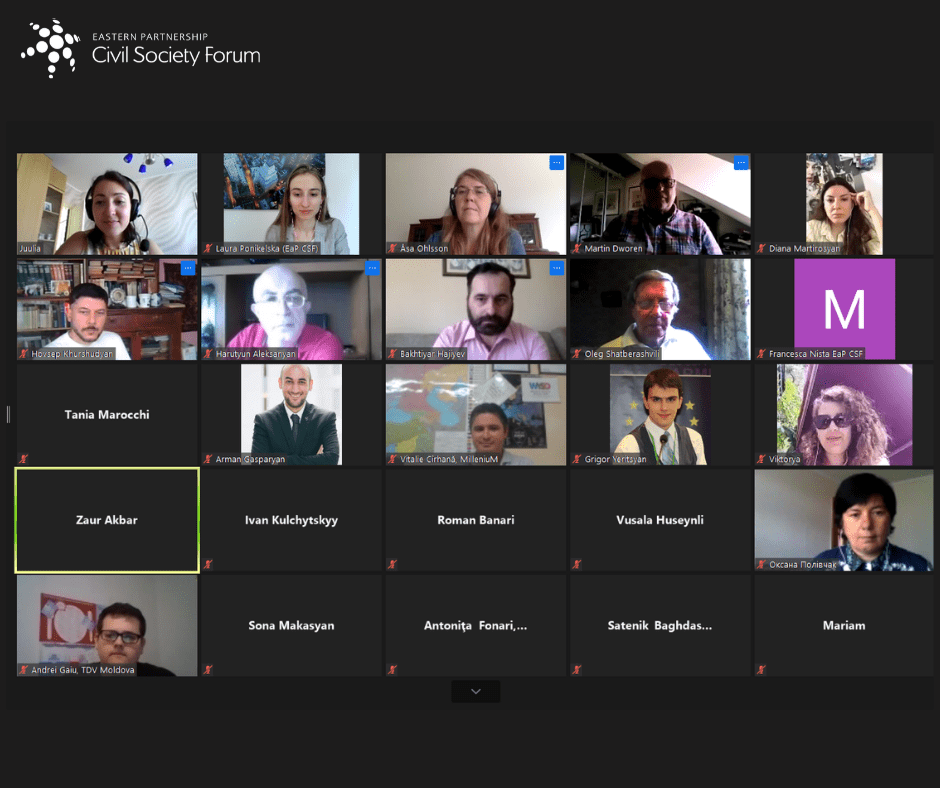Brussels, 18 July 2020
Working Group 4 online meeting
Working Group 4 – Contacts between People held its annual meeting during the week of 13 to 17 July entirely online. The group discussed various issues regarding youth and mobility, education, culture and research against the backdrop of the COVID-19 pandemic. During the last session, participants engaged in a meeting with EU stakeholders from DG NEAR and DG EAC.
The COVID-19 pandemic has forced many youth organisations in the EaP to cease or reduce their activities, either working online or adapting activities to support vulnerable people. Moreover, the crisis has moved the education activities online. The increasing activity of learning online has highlighted a common problem in the EaP: the lack of access to equipment and internet. This concerns especially large families and people living in rural areas. Also, teachers sometimes lack the necessary skills or devices in order to successfully conduct online teaching. Access to devices and support to teachers needs to be ensured in all EaP countries.
Next to education, the COVID-19 crisis had a disastrous impact on the cultural sector. With governments imposing restrictions, events were cancelled or postponed and people working in the field have lost their incomes or jobs. Participants of the WG4 meeting proposed different ideas that could help mitigate the impact of the crisis, like the creation of an online platform where artists can sell their art or put content online. The research sector is also suffering from the pandemic, given that projects and money have been moved to support the health sector.
On the last day, Working Group 4 participated in a meeting with EU stakeholders. Bella Nestorova, Team Leader at DG NEAR, highlighted the EU’s quick reaction to mobilise support during the pandemic. Moreover, the rapid response mechanism for civil society allowed to provide funds for remote education and assistance to teachers. Following, Ivana Vrhovski, Policy Officer at DG EAC, informed the participants on the fact that the EU Commission provides online tools to support countries to move to digital learning. These tools, such as the School Education Gateway, are also available to EaP countries and constitute a valuable resource. Lastly, Almut Brunckhorst, Team Leader at DG NEAR, addressed several programs in support of youth. She insisted that it is essential to increase the participation of disadvantaged youth in programs like Erasmus+.

